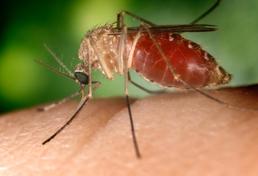Epidemiology

Epidemiology is concerned with studying illness and disease in populations. Major concerns of epidemiology include modelling the spread and control of infectious diseases (e.g. flu), and identifying risk factors for common diseases (e.g. heart disease and cancer).
For more information, see the Epidemiology page on Wikipedia.
For queries about this topic, contact Richard Edwards.
View the calendar of events relating to this topic.
Projects

A composite likelihood approach to genome-wide data analyses.
Andrew Collins (Investigator), Jane Gibson, Ioannis Politopoulos
We describe composite likelihood-based analysis of a genome-wide breast cancer case-control sample by determining genome regions of fixed size on a linkage disequilibrium map which delimit comparable levels of linkage disequilibrium. Analysis of findings suggests further validation in more samples from other cohorts as well as the exploitation of novel computationally-intensive methods such as next-generation sequencing.
Genetic studies to characterise the role of genetic factors in early-onset breast cancer
Andrew Collins (Investigator), Rosanna Upstill-Goddard
Breast cancer is a highly heterogeneous disease, with many distinct subtypes. In the majority of breast cancer cases the causative genetic component is poorly characterised. This study aims to explore both rare and common mutations in early-onset breast cancer patients and the contribution of such variants to disease using a variety of analytic approaches.

Identifying variants in next generation sequencing data of 61 paediatric Inflammatory Bowel Disease patients
Sarah Ennis (Investigator), Gaia Andreoletti
This study aims to characterise the mutations of genes known to predispose Inflammatory bowel disease in 61 paediatric patients using next generation sequencing analysis. Our aim is to identify the relative impact of known genes in individual case presentations of disease and correlate matches with clinical manifestation.

Mathematical tools for analysis of genome function, linkage disequilibrium structure and disease gene prediction
Andrew Collins, Mahesan Niranjan, Reuben Pengelly (Investigators), Alejandra Vergara Lope
This iPhD project uses a Gaussian Bayesian Networks approaches framework through machine learning approach to predict which genes are involved in the development of different diseases.

Mathematical tools for analysis of genome function, linkage disequilibrium structure and disease gene prediction
Mahesan Niranjan, Andrew Collins, Reuben Pengelly (Investigators)
This PhD project uses a Monte Carlo molecular simulation processes approach to predict which genes are involved in the development of different diseases.

Simulating Sleeping Sickness: a two-host agent-based model
Jason Noble, Peter Atkinson (Investigators), Simon Alderton
Sleeping sickness is a vector-borne, parastic disease which affects millions of people across 36 sub-Saharan African countries. Using agent-based models, we aim to gain a greater understanding of the interactions between the tsetse fly vector and both animal and human hosts.
Building an accurate representation will allow the testing of local interventation scenarios including the closing of watering holes, and the selective spraying of cattle with insecticides.

The application of next-generation sequencing to unresolved familial disease
Andrew Collins, Sarah Ennis (Investigators), Jane Gibson, Reuben Pengelly
Next-generation sequencing (NGS) allows us to sequence individual patients cost-effectively, allowing us to enter a new era of genomic medicine. The level of genetic detail that we can access through these methods is unprecedented making it suitable for clinical molecular diagnostics.

Whole exome sequencing identifies novel FLNA mutation in familial Ebstein's anomaly
Jane Gibson, Andrew Collins, Sarah Ennis (Investigators), Gaia Andreoletti
We describe the application of whole-exome sequencing in a family in which eight people in three generations presented Ebstein's anomaly.
People
 Peter Atkinson
Peter AtkinsonProfessor, Geography (FSHS)
 Andrew Collins
Andrew CollinsProfessor, Medicine (FM)
 Sarah Ennis
Sarah EnnisProfessor, Medicine (FM)
 John Holloway
John HollowayProfessor, Medicine (FM)
 Mahesan Niranjan
Mahesan NiranjanProfessor, Electronics and Computer Science (FPAS)
 Tiina Roose
Tiina RooseReader, Engineering Sciences (FEE)
 Reuben Pengelly
Reuben PengellySenior Lecturer, Medicine (FM)
 Nicholas Sheron
Nicholas SheronSenior Lecturer, Medicine (FM)
 Jane Gibson
Jane GibsonLecturer, Biological Sciences (FNES)
 Johanna Jefferies
Johanna JefferiesResearch Fellow, Medicine (FM)
 Jason Noble
Jason NobleResearch Fellow, Electronics and Computer Science (FPAS)
 Grant Aitken
Grant AitkenPostgraduate Research Student, Geography (FSHS)
 Simon Alderton
Simon AldertonPostgraduate Research Student, Geography (FSHS)
 Gaia Andreoletti
Gaia AndreolettiPostgraduate Research Student, Medicine (FM)
 Caroline Duignan
Caroline DuignanPostgraduate Research Student, Biological Sciences (FNES)
 Rebecca Gladstone
Rebecca GladstonePostgraduate Research Student, Medicine (FM)
 Tom Hebbron
Tom HebbronPostgraduate Research Student, Electronics and Computer Science (FPAS)
 Massimo Stella
Massimo StellaPostgraduate Research Student, Electronics and Computer Science (FPAS)
 Alejandra Vergara Lope
Alejandra Vergara LopePostgraduate Research Student, Engineering Sciences (FEE)
 Elisabeth zu-Erbach-Schoenberg
Elisabeth zu-Erbach-SchoenbergPostgraduate Research Student, Management (FBL)
 Matthew Higgins
Matthew HigginsUndergraduate Research Student, Biological Sciences (FNES)
 Elena Vataga
Elena VatagaTechnical Staff, iSolutions
 Petrina Butler
Petrina ButlerAdministrative Staff, Research and Innovation Services
 Ella Marley-Zagar
Ella Marley-ZagarEnterprise staff, Medicine (FM)
 Kieren Lythgow
Kieren LythgowAlumnus, Health Protection Agency
 Stephen Green
Stephen GreenNone, None
 Ioannis Politopoulos
Ioannis PolitopoulosNone, None
 Rosanna Upstill-Goddard
Rosanna Upstill-GoddardNone, None